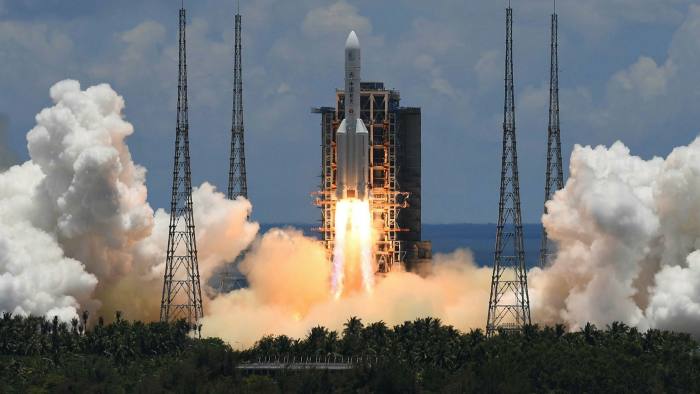China on Thursday successfully launched an unmanned probe, Tianwen-1 towards Mars in its first independent mission, as a bid for global leadership in space and a demonstration of its technical skills and ambition. The probe is named after a poem written by Qu Yuan in ancient China-questions to heaven.
This probe is expected to reach Mars by February 2021 where it will attempt to deploy the rover to survey the planet for 90 days.
There would challenges ahead after the launch of this craft as well, Mission spokesman for Mars, Liu Tongjie told reporters prior to the launch.
He said that when it reaches near it’s landing spot on Mars, its deceleration is very important for proper landing.
He also added that in case the deceleration process is not perfect, or if the accuracy of the flight is not sufficient, then the probe will not be captured by Mars in an orbit, referring to the gravity of Mars acting on the craft.
Liu also said that craft would orbit Mars for about two and a half months and would look for an opportunity to enter its atmosphere and make a soft landing.
He stated that China’s EDL process – entry descent and landing can be successful, and the spacecraft can land safely. Eight spacecrafts of different origins; American, European, and Indian – are either orbiting Mars or have other missions on its surface or are being planned.
The United Arab Emirates on Monday began a mission to Mars, Emirates Mars mission, an orbiter that would study the planet’s atmosphere.
China had previously collaborated on a Mars mission with Russia in 2011, but the probing Russian spacecraft failed to exit Earth’s orbit and fell after disintegration in the Pacific Ocean.
Another planned mission for Mars, the European Union-Russian joint project- ExoMars, has been postponed for two years due to the coronavirus pandemic scenario and other technical issues.





